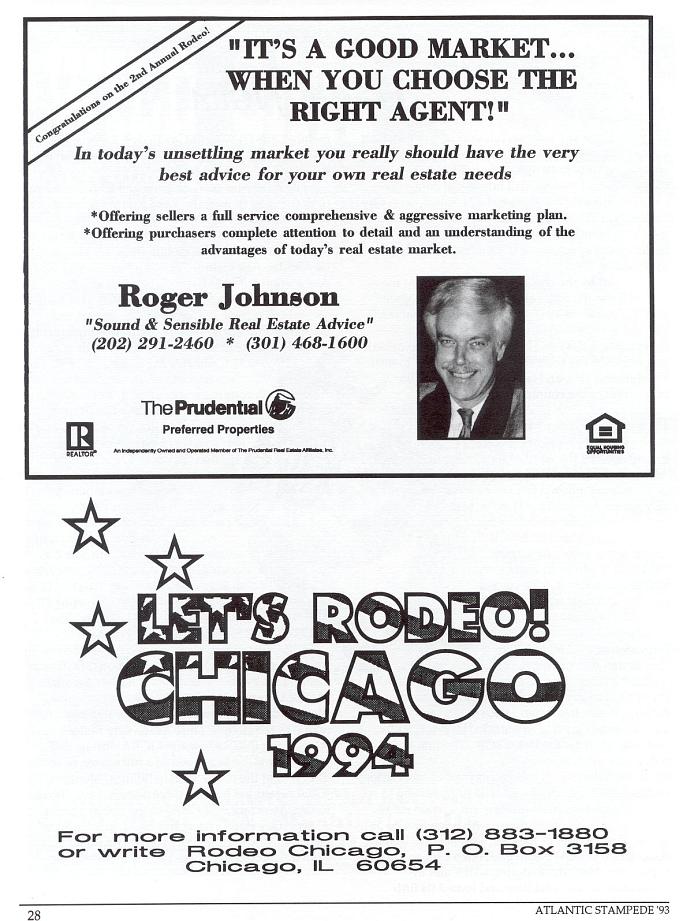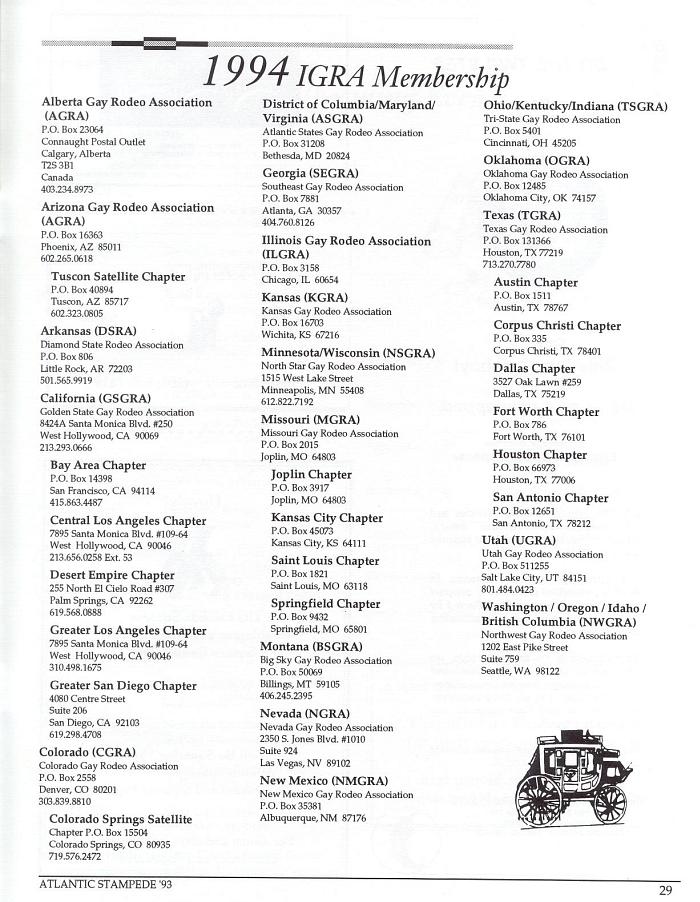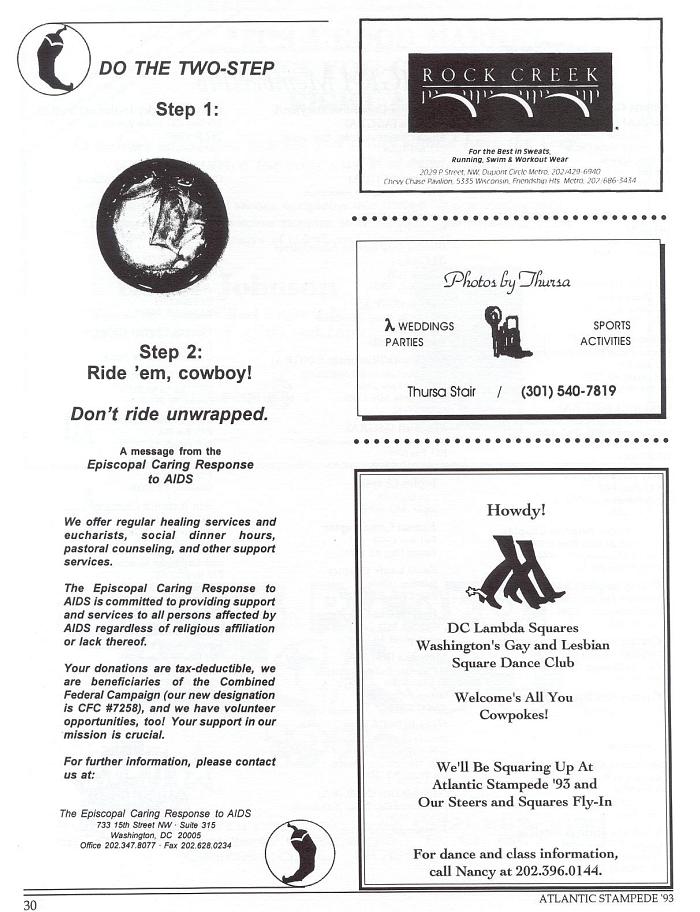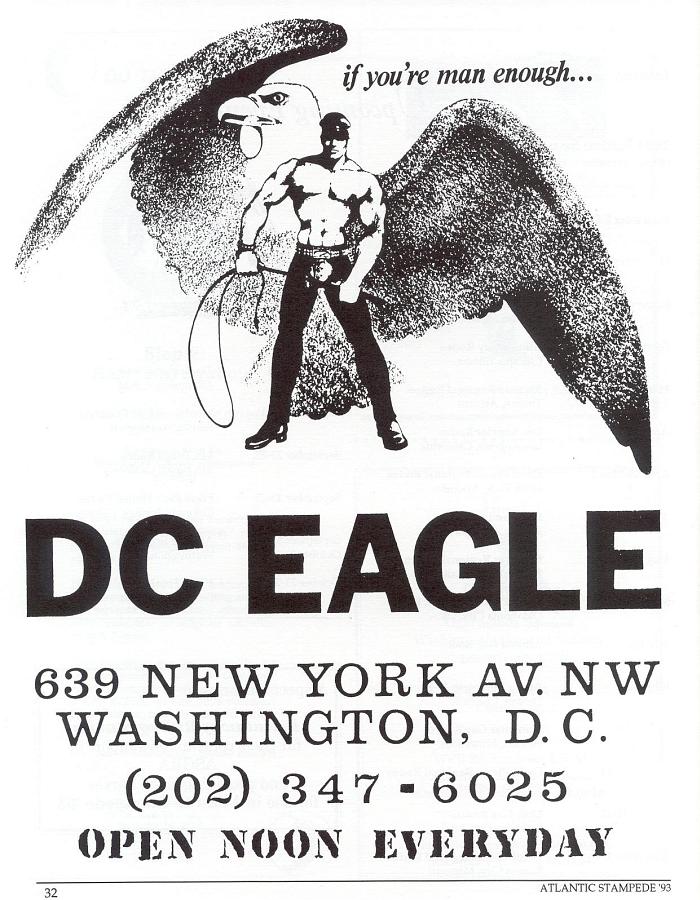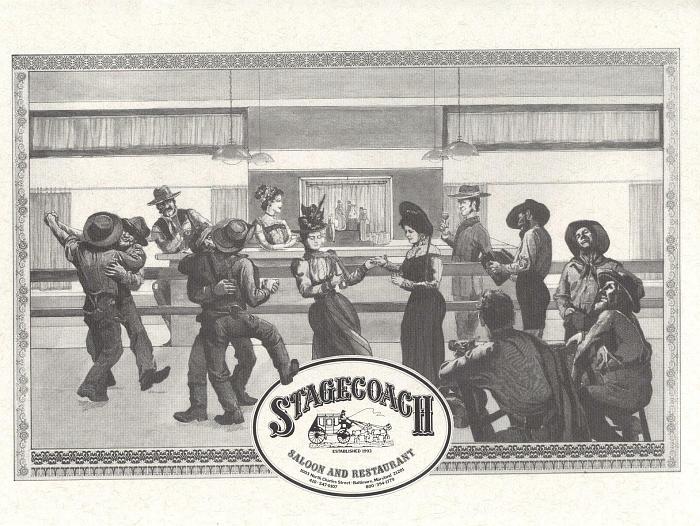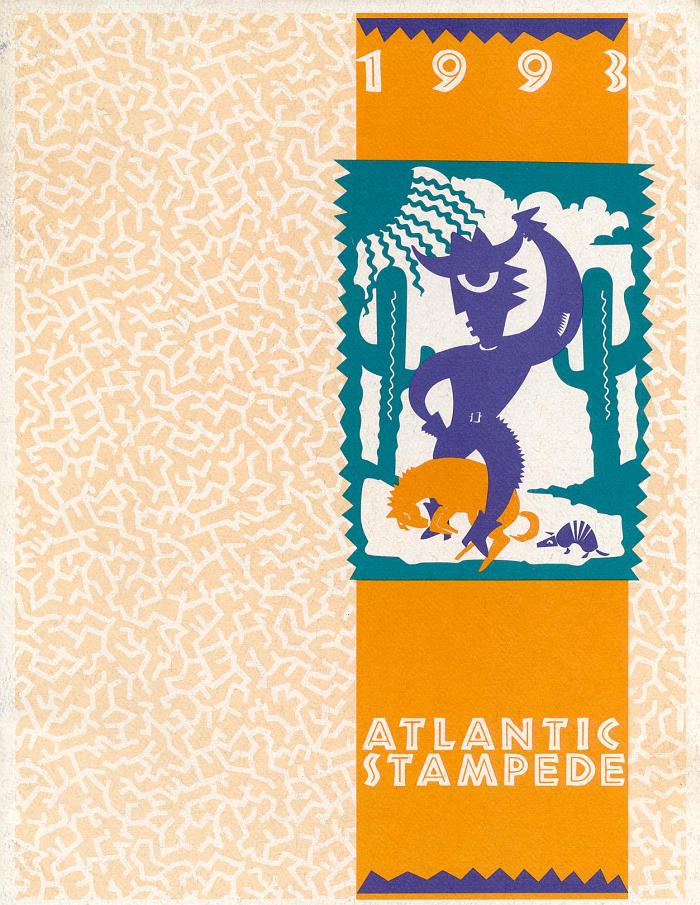
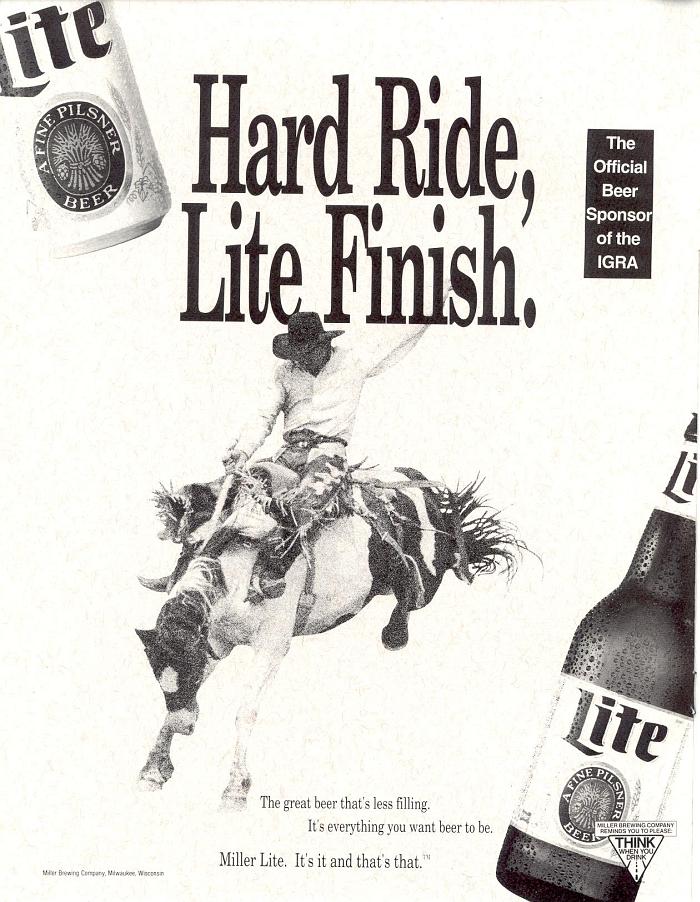
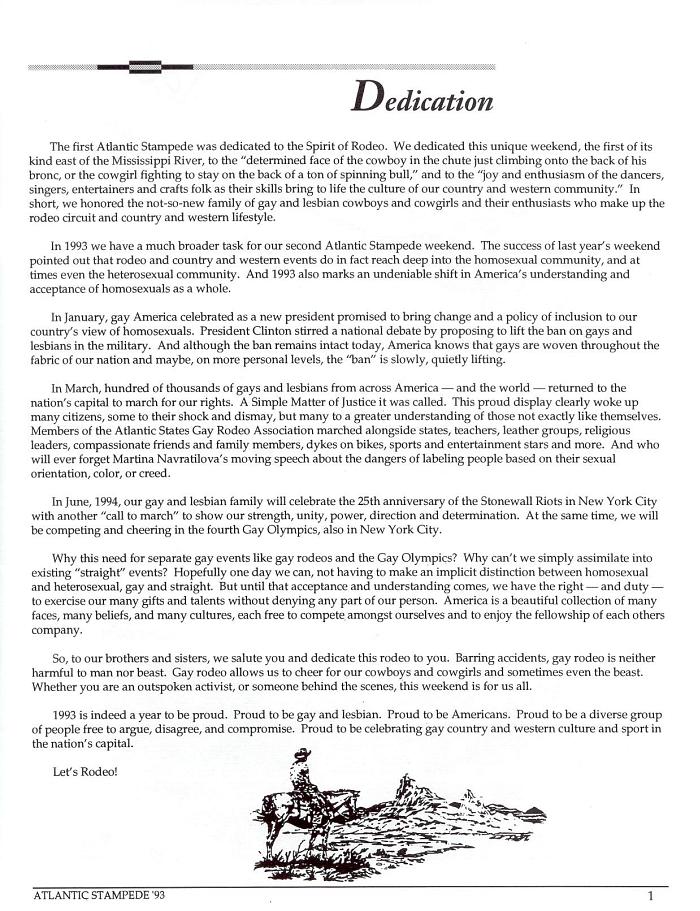
Dedication
The first Atlantic Stampede was dedicated to the Spirit of Rodeo. We dedicated this unique weekend, the first of its kind east of the Mississippi River, to the "determined face of the cowboy in the chute just climbing onto the back of his bronc, or the cowgirl fighting to stay on the back of a ton of spinning bull," and to the "joy and enthusiasm of the dancers, singers, entertainers and crafts folk as their skills bring to life the culture of our country and western community." In short, we honored the not-so-new family of gay and lesbian cowboys and cowgirls and their enthusiasts who make up the rodeo circuit and country and western lifestyle.
In 1993 we have a much broader task for our second Atlantic Stampede weekend. The success of last year's weekend pointed out that rodeo and country and western events do in fact reach deep into the homosexual community, and at times even the heterosexual community. And 1993 also marks an undeniable shift in America's understanding and acceptance of homosexuals as a whole.
In January, gay America celebrated as a new president promised to bring change and a policy of inclusion to our country's view of homosexuals. President Clinton stirred a national debate by proposing to lift the ban on gays and lesbians in the military. And although the ban remains intact today, America knows that gays are woven throughout the fabric of our nation and maybe, on more personal levels, the ''ban" is slowly, quietly lifting.
In March, hundreds of thousands of gays and lesbians from across America-and the world returned to the nation's capital to march for our rights. A Simple Matter of Justice it was called. This proud display clearly woke up many citizens, some to their shock and dismay, but many to a greater understanding of those not exactly like themselves. Members of the Atlantic States Gay Rodeo Association marched alongside states, teachers, leather groups, religious leaders, compassionate friends and family members, dykes on bikes, sports and entertainment stars and more. And who will ever forget Martina Navratilova's moving speech about the dangers of labeling people based on their sexual orientation, color, or creed.
In June, 1994, our gay and lesbian family will celebrate the 25th anniversary of the Stonewall Riots in New York City with another "call to march" to show our strength, unity, power, direction and determination. At the same time, we will be competing and cheering in the fourth Gay Olympics, also in New York City.
Why this need for separate gay events like gay rodeos and the Gay Olympics? Why can't we simply assimilate into existing "straight" events? Hopefully one day we can, not having to make an implicit distinction between homosexual and heterosexual, gay and straight. But until that acceptance and understanding comes, we have the right-and duty to exercise our many gifts and talents without denying any part of our person. America is a beautiful collection of many faces, many beliefs, and many cultures, each free to compete. amongst ourselves and to enjoy the fellowship of each others company.
So, to our brothers and sisters, we salute you and dedicate this rodeo to you. Barring accidents, gay rodeo is neither harmful to man nor beast. Gay rodeo allows us to cheer for our cowboys and cowgirls and sometimes even the beast. Whetter you are an outspoken activist, or someone behind the scenes, this weekend is for us all.
1993 is indeed a year to be proud. Proud to be gay and lesbian. Proud to be Americans. Proud to be a diverse group of people free to argue, disagree, and compromise. Proud to be celebrating gay country and western culture and sport in the nation's capital.
Let"s Rodeo!

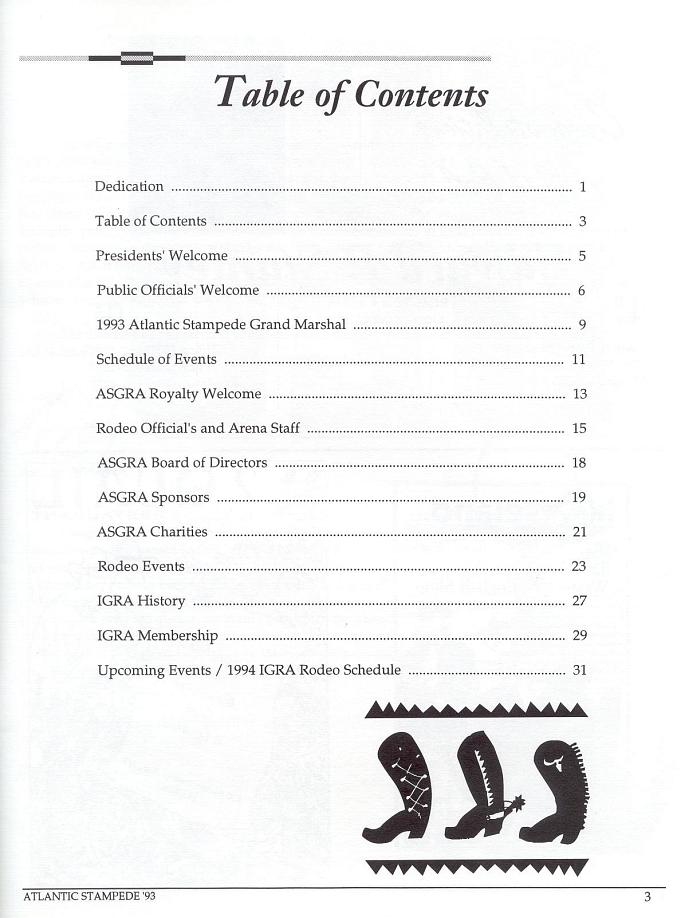
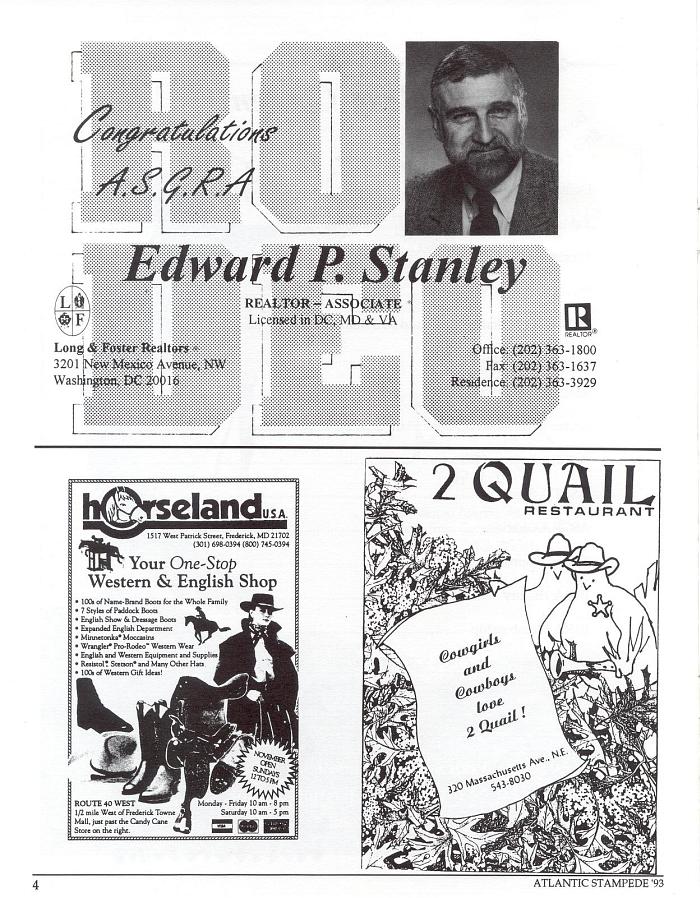
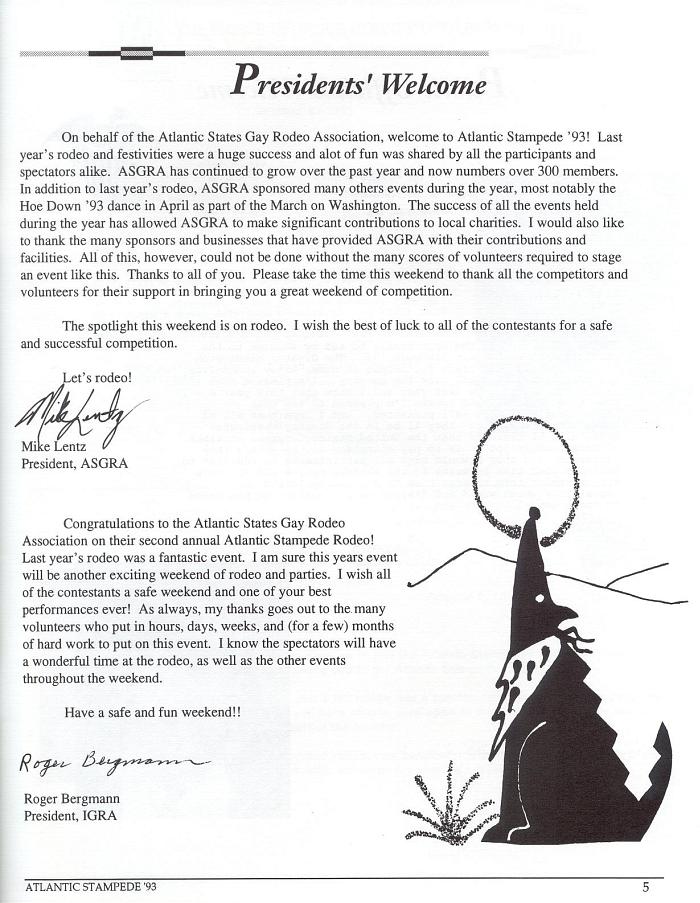
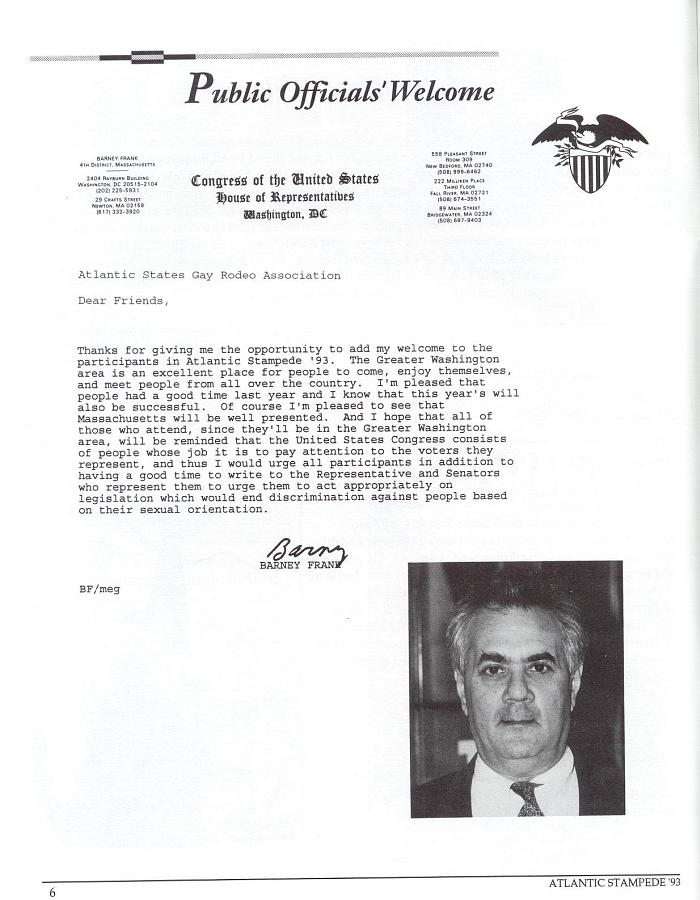
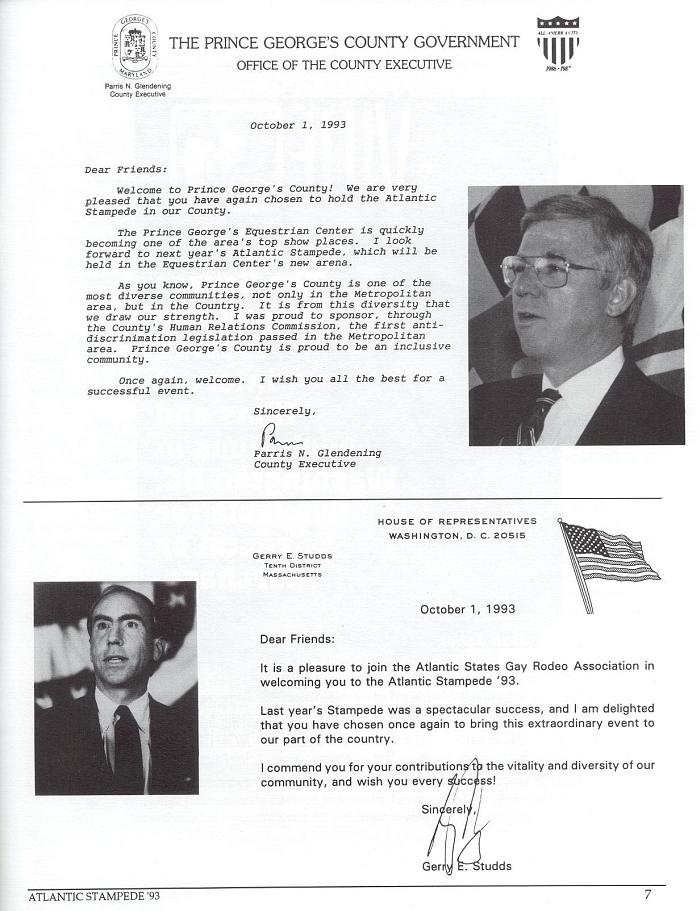
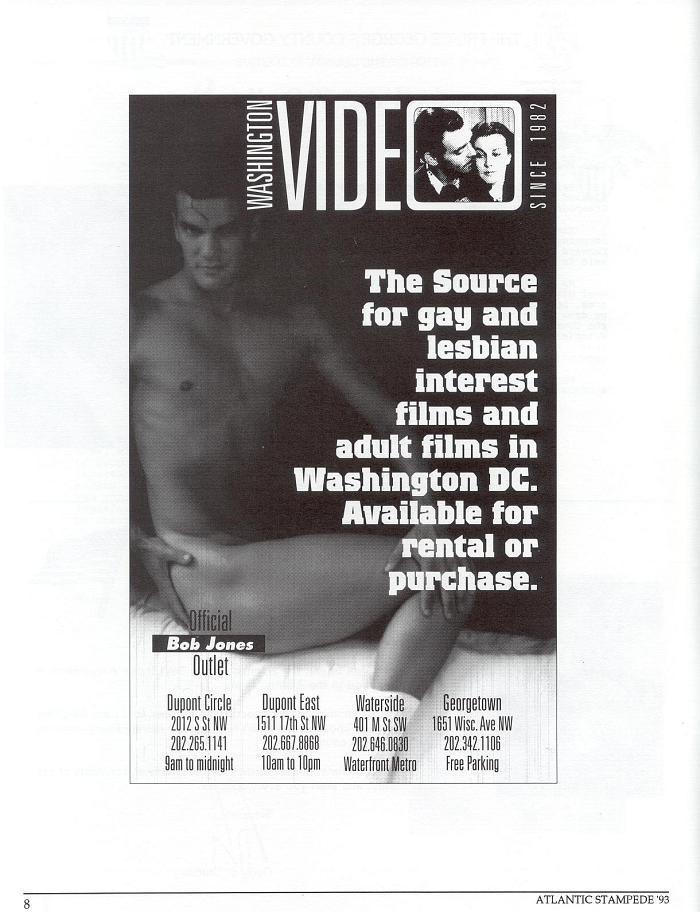
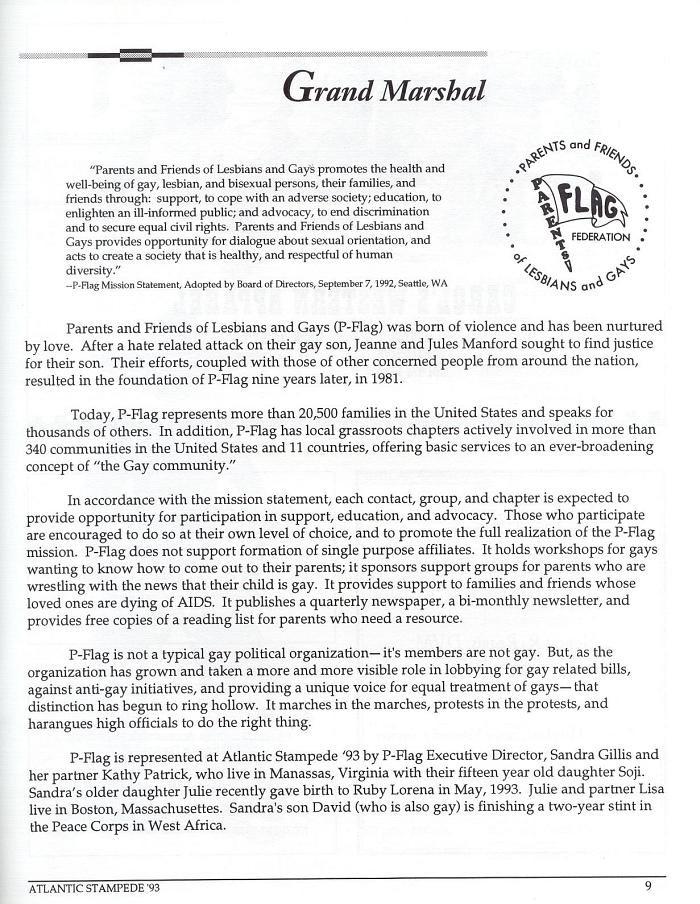
Grand Marshal, PFLAG
"Parents and Friends of Lesbians and Gays promotes the health and well-being of gay, lesbian, and bisexual persons, their families, and friends through: support, to cope with an adverse society; education, to enlighten an ill-informed public; and advocacy, to end discrimination and to secure equal civil rights. Parents and Friends of Lesbians and Gays provides opportunity for dialogue about sexual orientation, and acts to create a society that is healthy, and respectful of human diversity."
P-Flag Mission Statement, Adopted by Board of Directors, September 7, 1992, Seattle, WA
Parents and Friends of Lesbians and Gays (P-Flag) was born of violence and has been nurtured by love. After a hate related attack on their gay son, Jeanne and Jules Manford sought to find justice for their son. Their efforts, coupled with those of other concerned people from around the nation, resulted in the foundation of P-Flag nine years later, in 1981.
Today, P-Flag represents more than 20,500 families in the United States and speaks for thousands of others. In addition, P-Flag has local grassroots chapters actively involved in more than 340 communities in the United States and 11 countries, offering basic services to an ever-broadening concept of "the Gay community."
In accordance with the mission statement, each contact, group, and chapter is expected to provide opportunity for participation in support, education, and advocacy. Those who participate are encouraged to do so at their own level of choice, and to promote the full realization of the P-Flag mission. P-Flag does not support formation of single purpose affiliates. It holds workshops for gays wanting to know how to come out to their parents; it sponsors support groups for parents who are wrestling with the news that their child is gay. It provides support to families and friends whose loved ones are dying of AIDS. It publishes a quarterly newspaper, a bi-monthly newsletter, and provides free copies of a reading list for parents who need a resource.
P-Flag is not a typical gay political organization- its members are not gay. But, as the organization has grown and taken a more and more visible role in lobbying for gay related bills, against anti-gay initiatives, and providing a unique voice for equal treatment of gays- that distinction has begun to ring hollow. It marches in the marches, protests in the protests, and harangues high officials to do the right thing.
P-Flag is represented at Atlantic Stampede '93 by P-Flag Executive Director, Sandra Gillis and her partner Kathy Patrick, who live in Manassas, Virginia with their fifteen year old daughter Soji. Sandra's older daughter Julie recently gave birth to Ruby Lorena in May, 1993. Julie and partner Lisa live in Boston, Massachusetts. Sandra's son David (who is also gay) is finishing a two-year stint in the Peace Corps in West Africa.
PFLAG website
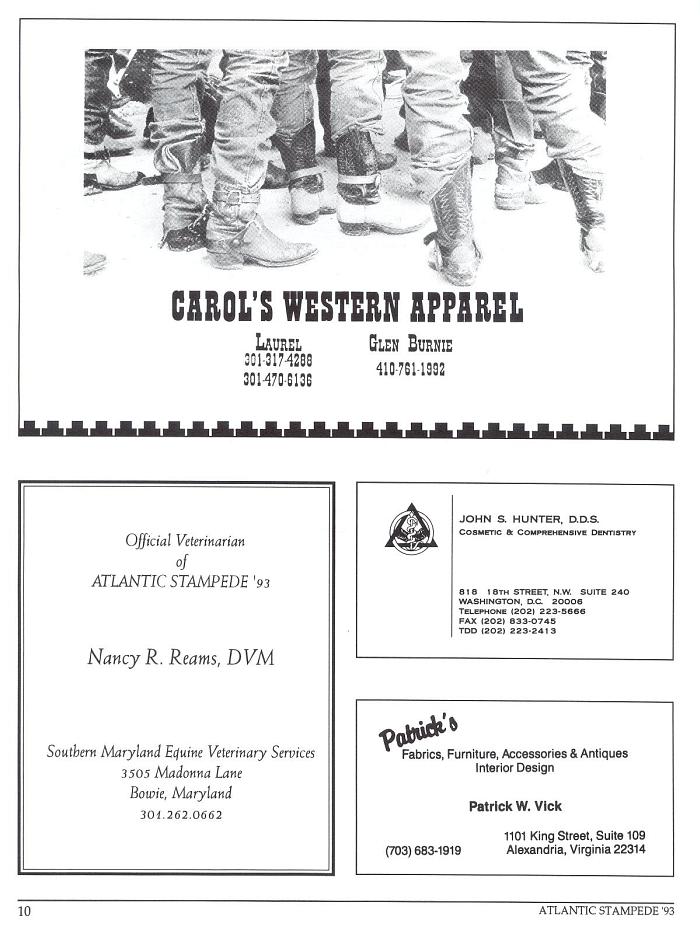
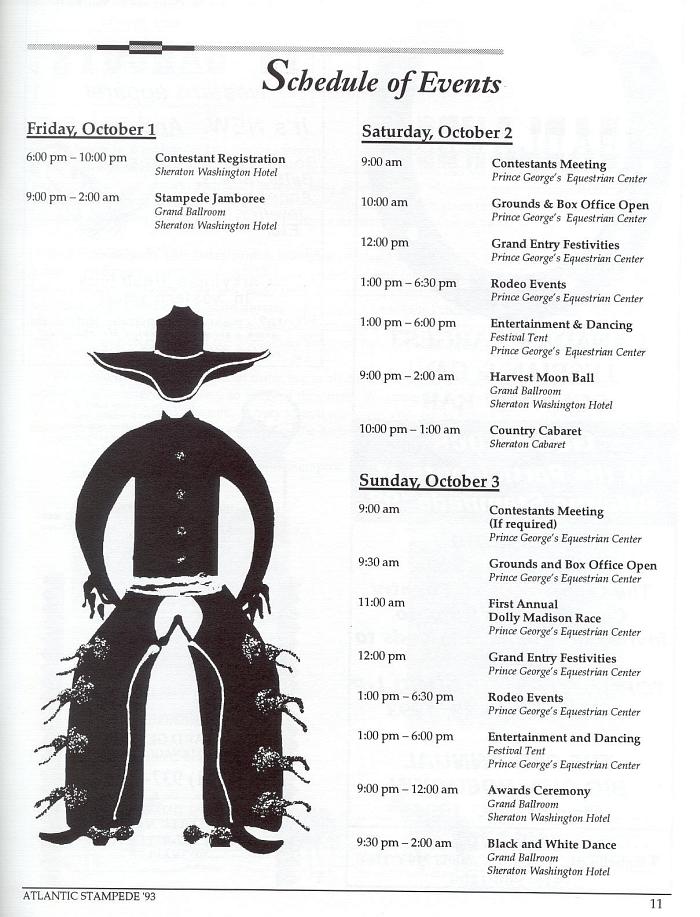

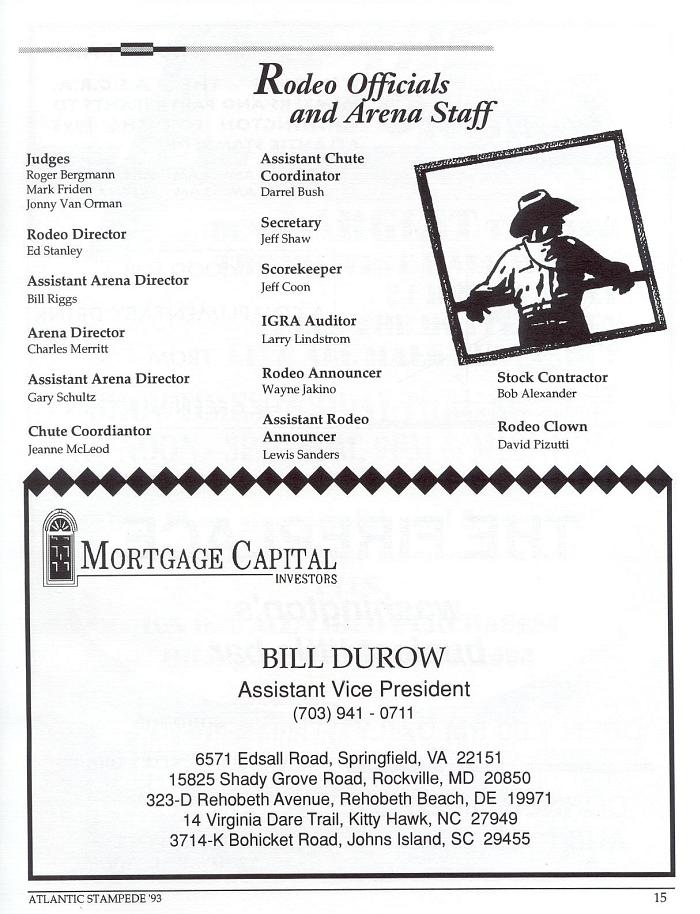
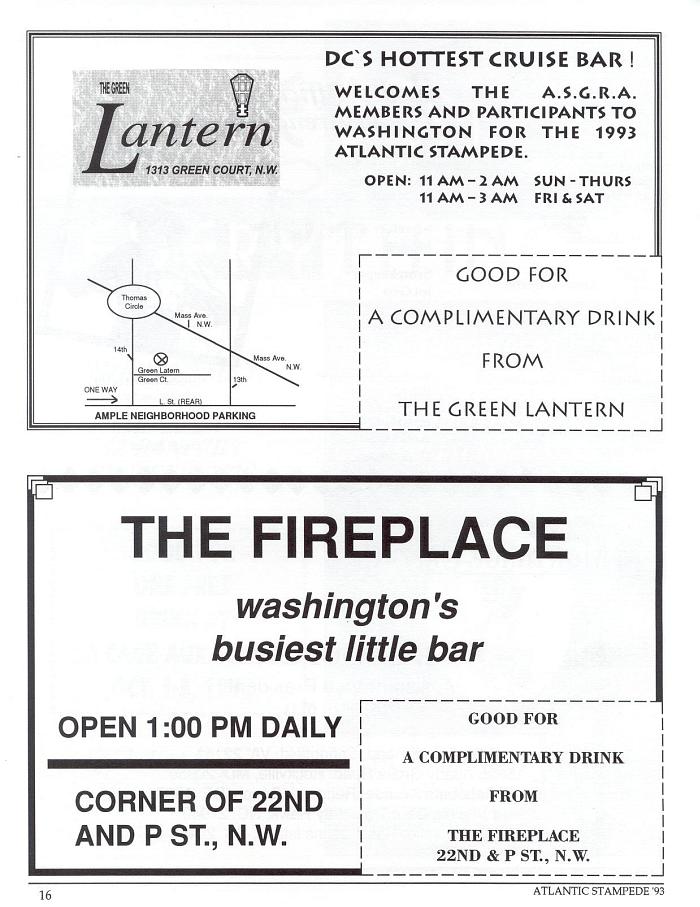
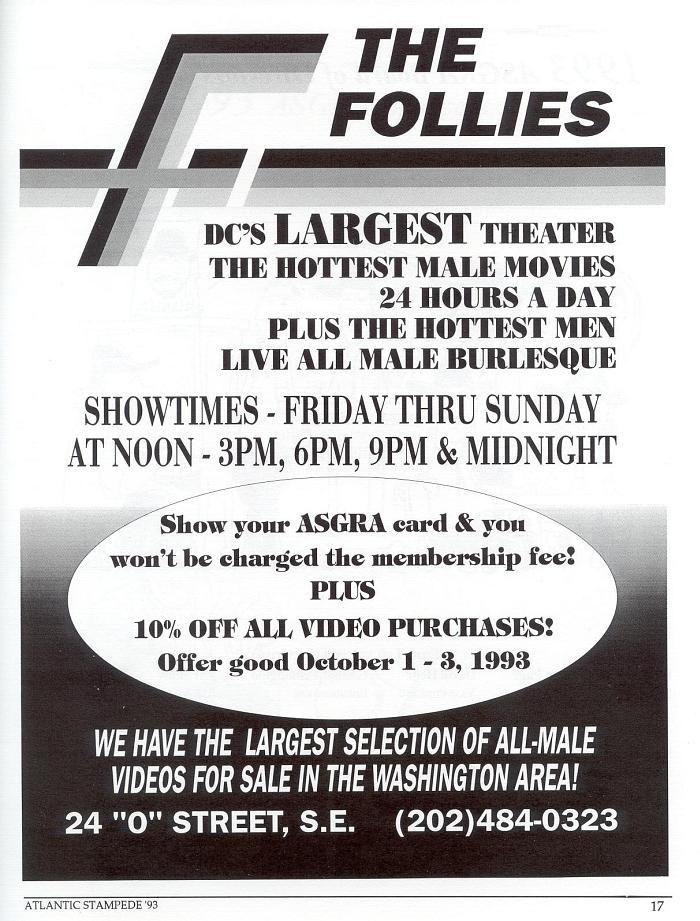
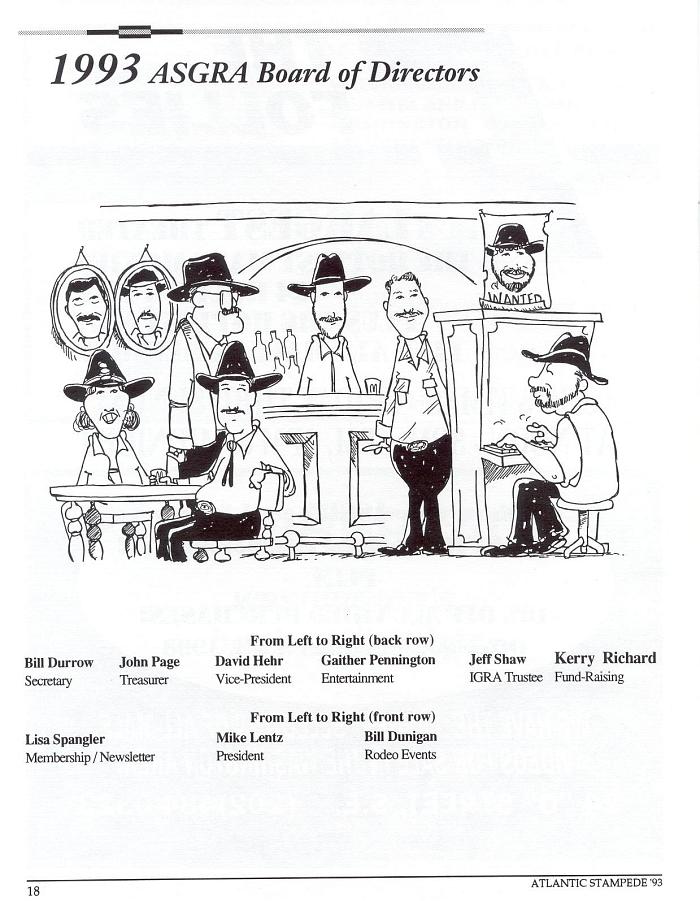
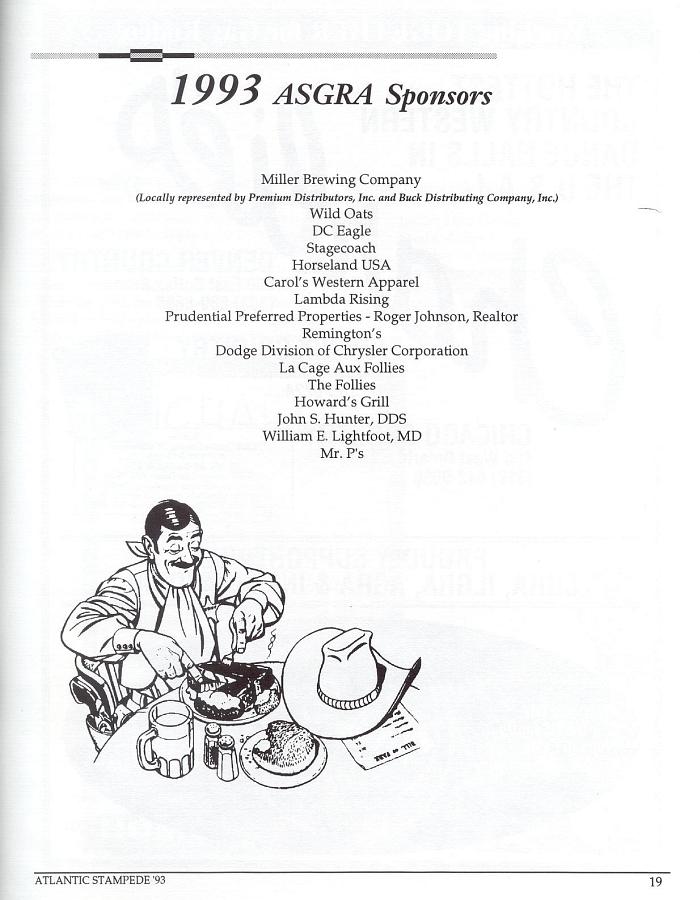
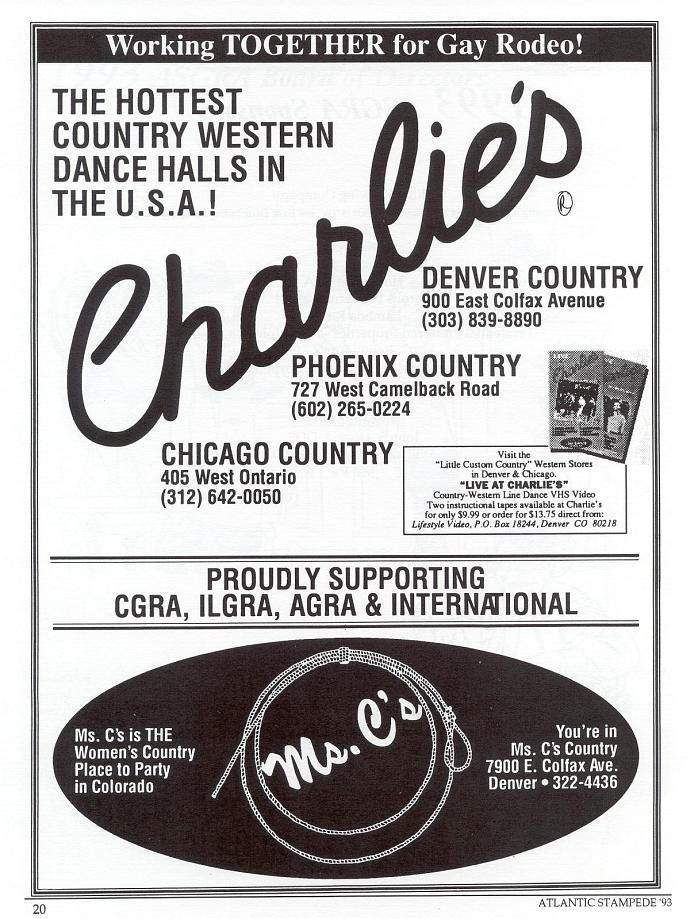
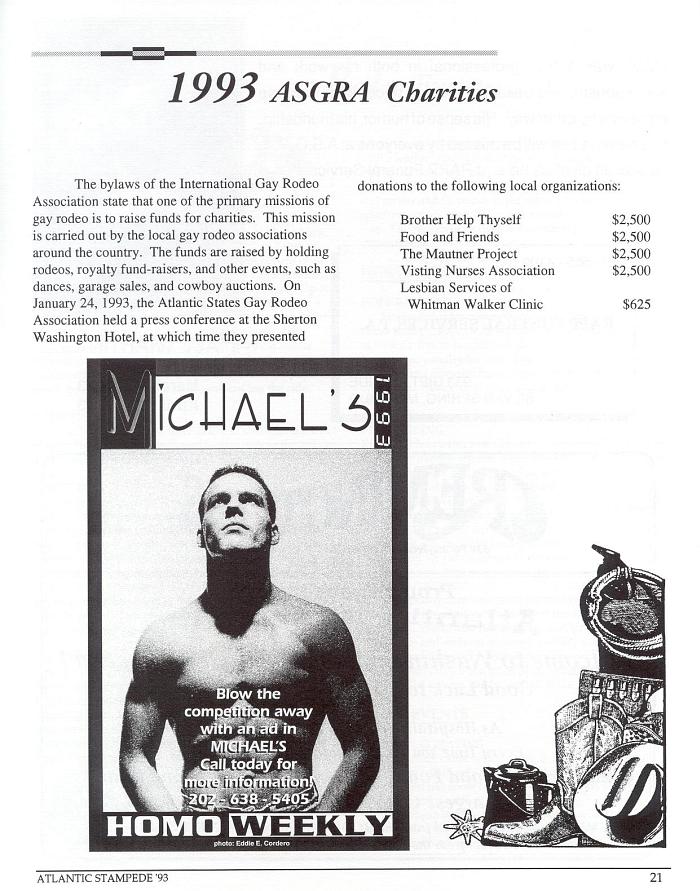
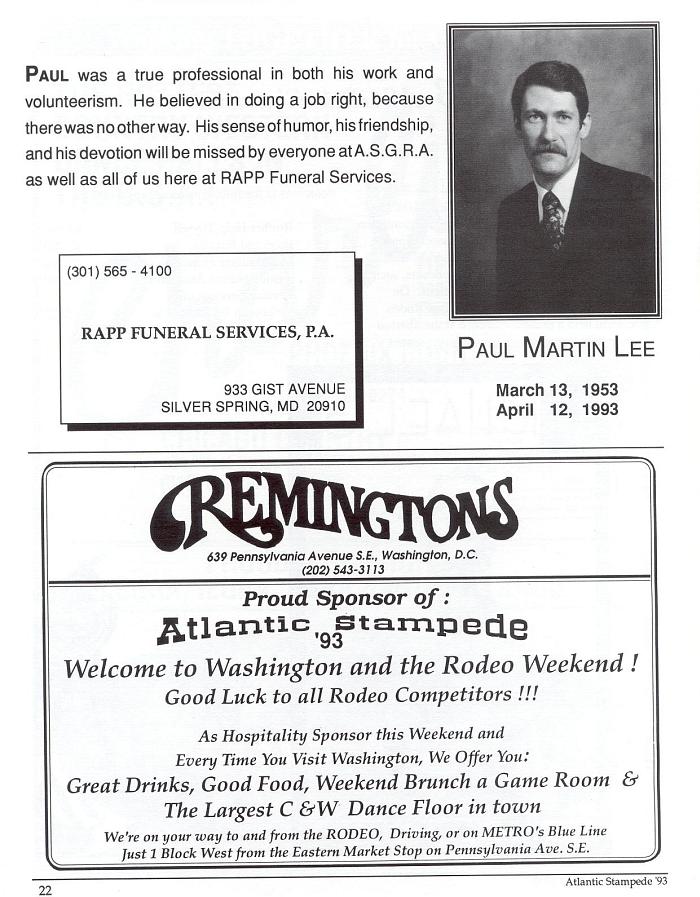
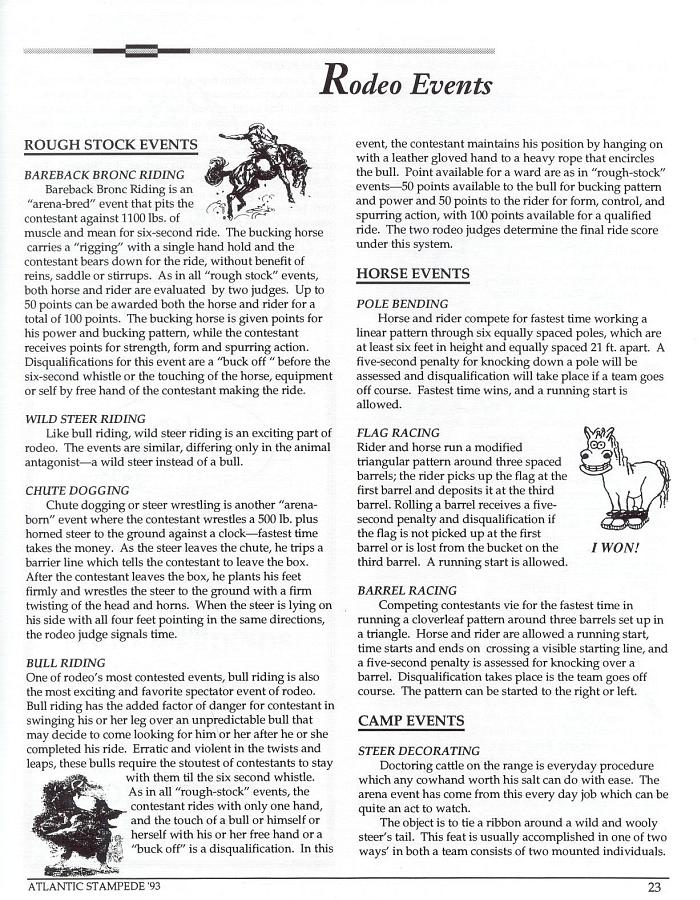
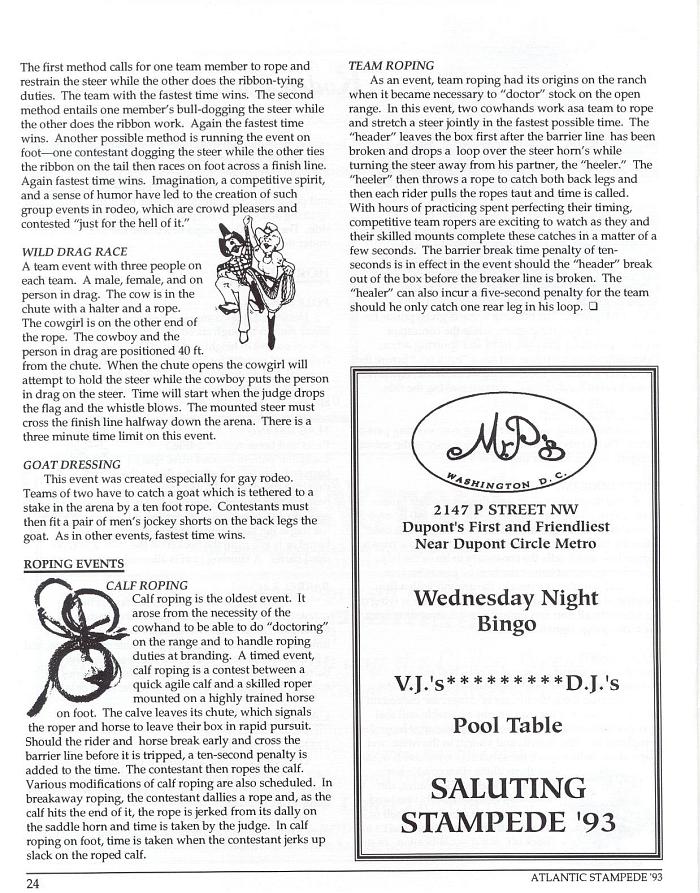
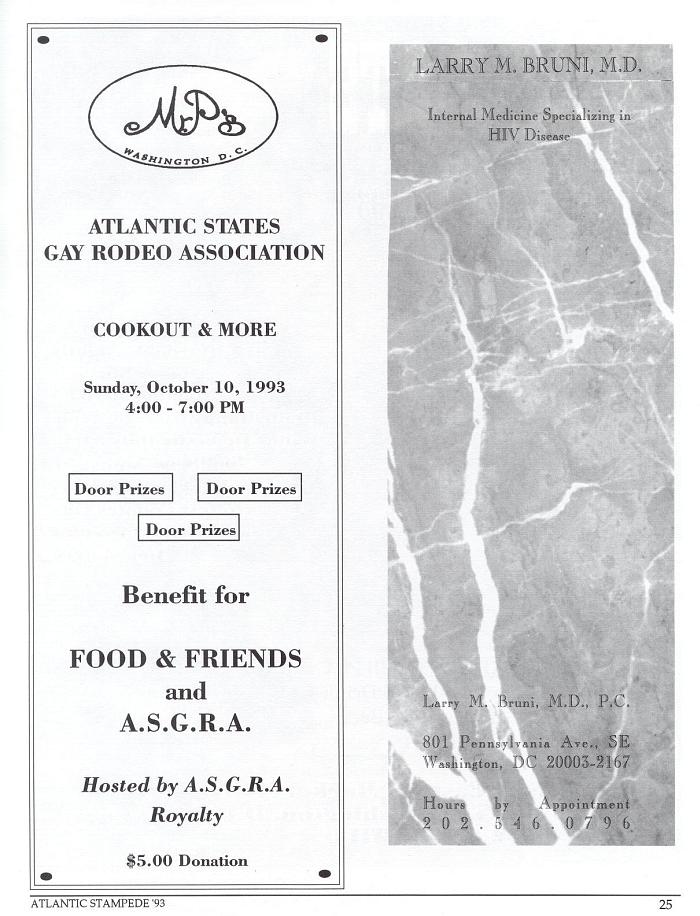
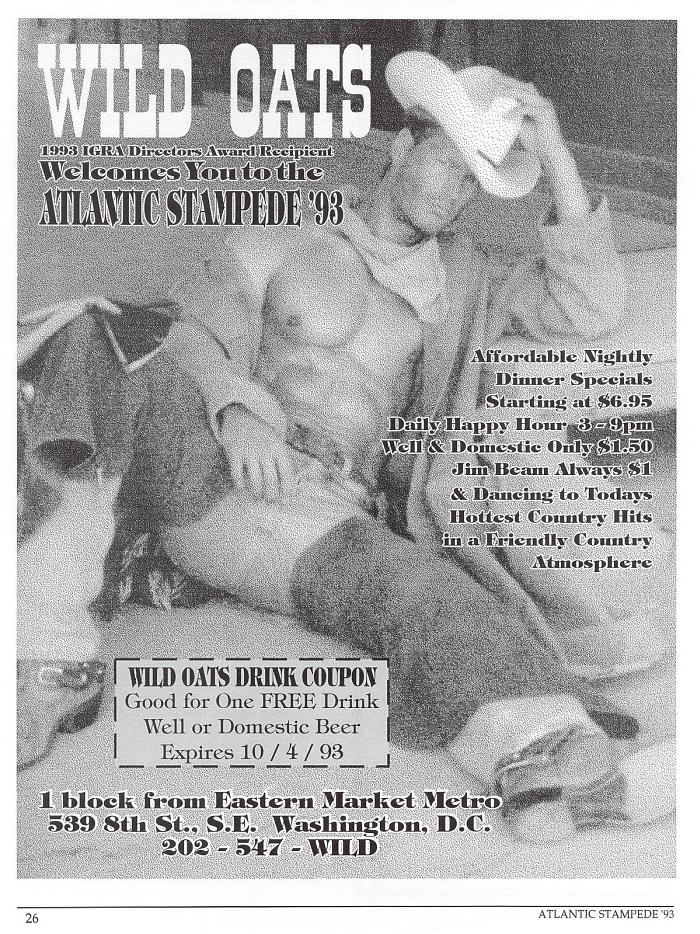
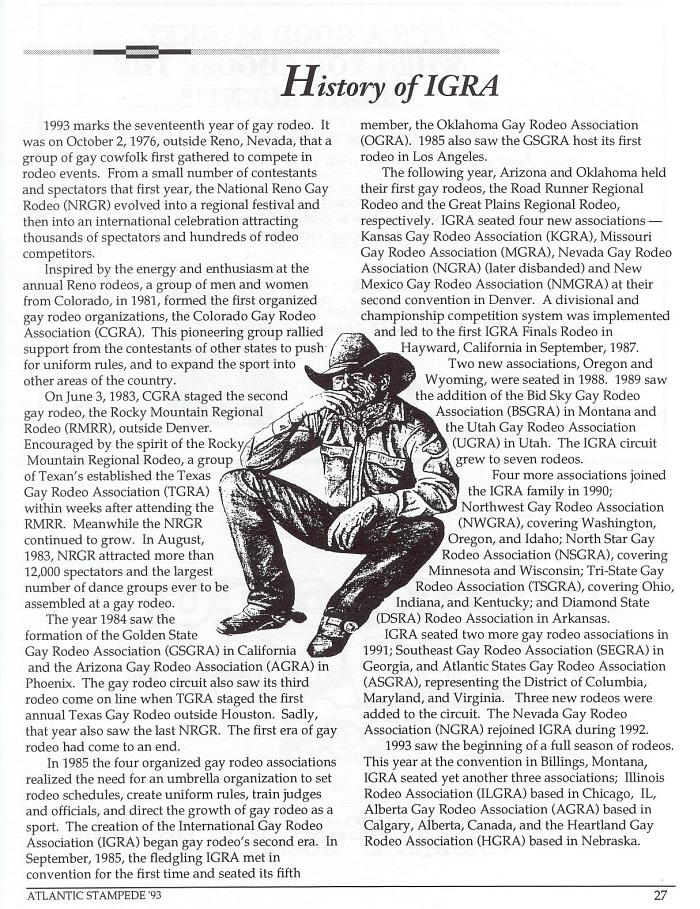
History of IGRA
1993 marks the seventeenth year of gay rodeo. It was on October 2, 1976, outside Reno, Nevada, that a group of gay cowfolk first gathered to compete in rodeo events. From a small number of contestants and spectators that first year, the National Reno Gay Rodeo (NRGR) evolved into a regional festival and then into an international celebration attracting thousands of spectators and hundreds of rodeo competitors.
Inspired by the energy and enthusiasm at the annual Reno rodeos, a group of men and women from Colorado, in 1981, formed the first organized gay rodeo organization, the Colorado Gay Rodeo Association (CGRA). This pioneering group rallied support from the contestants of other states to push for uniform rules, and to expand the sport into other areas of the country.
On June 3, 1983, CGRA staged the second gay rodeo, the Rocky Mountain Regional Rodeo (RMRR), outside Denver. Encouraged by the spirit of the Rocky Mountain Regional Rodeo, a group of Texan's established the Texas Gay Rodeo Association (TGRA) within weeks after attending the RMRR. Meanwhile the NRGR continued to grow. In August, 1983, NRGR attracted more than 12,000 spectators and the largest number of dance groups ever to be assembled at a gay rodeo.
The year 1984 saw the formation of the Golden State Gay Rodeo Association (GSGRA) in California and the Arizona Gay Rodeo Association (AGRA) in Phoenix. The gay rodeo circuit also saw its third rodeo come on line when TGRA staged the first annual Texas Gay Rodeo outside Houston. Sadly, that year also saw the last NRGR. The first era of gay rodeo had come to an end.
In 1985 the four organized gay rodeo associations realized the need for an umbrella organization to set rodeo schedules, create uniform rules, train judges and officials, and direct the growth of gay rodeo as a sport. The creation of the International Gay Rodeo Association (lGRA) began gay rodeo's second era. In September, 1985, the fledgling IGRA met in convention for the first time and seated its fifth member, the Oklahoma Gay Rodeo Association (OGRA). 1985 also saw the GSGRA host its first rodeo in Los Angeles.
The following year, Arizona and Oklahoma held their first gay rodeos, the Road Runner Regional Rodeo and the Great Plains Regional Rodeo, respectively. IGRA seated four new associations-Kansas Gay Rodeo Association (KGRA), Missouri Gay Rodeo Association (MGRA), Nevada Gay Rodeo Association (NGRA) (later disbanded) and New Mexico Gay Rodeo Association (NMGRA) at their second convention in Denver. A divisional and championship competition system was implemented and led to the first IGRA Finals Rodeo in Hayward, California in September, 1987.
Two new associations, Oregon and Wyoming, were seated in 1988. 1989 saw the addition of the Bid Sky Gay Rodeo Association (BSGRA) in Montana and the Utah Gay Rodeo Association (UGRA) in Utah. The IGRA circuit grew to seven rodeos.
Four more associations joined the IGRA family in 1990; Northwest Gay Rodeo Association (NWGRA), covering Washington, Oregon, and Idaho; North Star Gay Rodeo Association (NSGRA), covering Minnesota and Wisconsin; Tri-State Gay Rodeo Association (TSGRA), covering Ohio, Indiana, and Kentucky; and Diamond State DSRA) Rodeo Association in Arkansas.
IGRA seated two more gay rodeo associations in 1991; Southeast Gay Rodeo Association (SEGRA) in Georgia, and Atlantic States Gay Rodeo Association (ASGRA), representing the District of Columbia, Maryland, and Virginia. Three new rodeos were added to the circuit. The Nevada Gay Rodeo Association (NGRA) rejoined IGRA during 1992.
1993 saw the beginning of a full season of rodeos. This year at the convention in Billings, Montana, IGRA seated yet another three associations; Illinois Rodeo Association (ILGRA) based in Chicago, IL, Alberta Gay Rodeo Association (AGRA) based in Calgary, Alberta, Canada, and the Heartland Gay Rodeo Association (HGRA) based in Nebraska.
